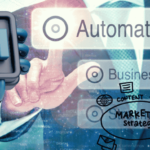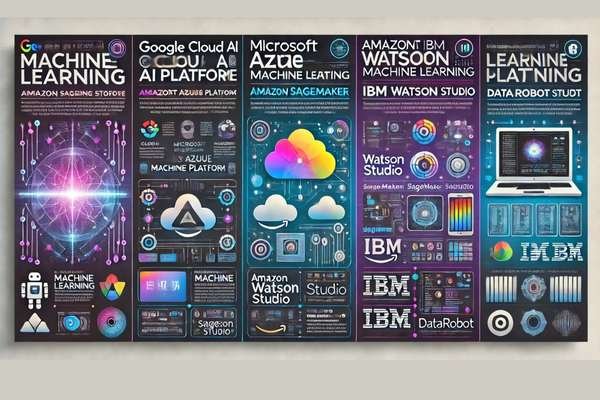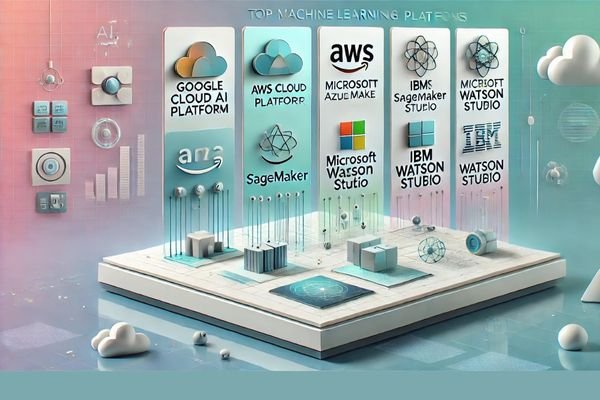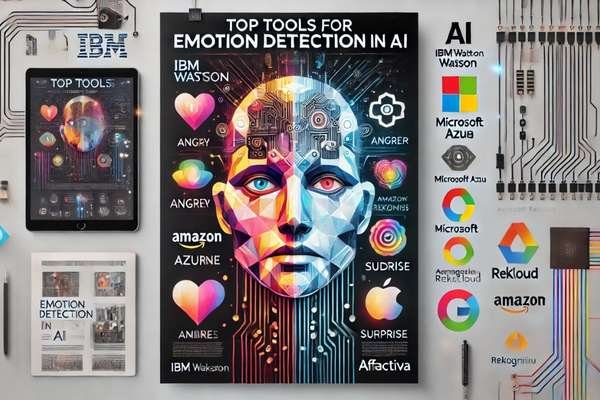
AI Image Generation: Tools for Designers and Marketers
September 16, 2024
Using AI to Enhance Your Marketing Automation Workflows
September 16, 2024How AI is Changing the Future of Marketing Automation
Artificial Intelligence (AI) is transforming marketing automation by making processes smarter, more efficient, and highly personalized. With AI-powered tools, marketers can now automate tasks such as email campaigns, customer segmentation, and data analysis in ways that were unimaginable just a few years ago. This shift allows digital marketers, developers, and content creators to focus on strategic activities while AI handles the routine work. In this article, we’ll explore how AI is reshaping the future of marketing automation and what opportunities and challenges lie ahead for professionals in the field.
Table of Contents
1. AI-Powered Personalization in Marketing Automation
One of the biggest advantages AI brings to marketing automation is the ability to personalize content at scale. Traditional marketing automation tools allowed for segmentation based on general customer behaviors, but AI takes this a step further by analyzing vast amounts of data to tailor messages to individual preferences.
1.1. Predictive Analytics and Customer Segmentation
AI algorithms can analyze customer data, from website interactions to purchase history, to predict future behaviors. This allows marketers to create highly targeted campaigns that cater to specific audience needs.
- Example: AI-powered platforms like HubSpot use predictive analytics to recommend the best content or products for each user. Marketers can automatically segment customers based on their behavior and engagement, ensuring personalized outreach at every stage of the buyer’s journey.
1.2. Dynamic Content Creation
AI tools are capable of generating content in real-time based on the customer’s actions. Whether it’s email subject lines or product recommendations, AI can ensure that every touchpoint is personalized and relevant.
- Use Case: Tools like Dynamic Yield enable marketers to serve personalized website content, ads, and email messages that update dynamically based on user behavior.
2. Automation of Repetitive Marketing Tasks
AI enables the automation of mundane, repetitive tasks, freeing up time for marketing teams to focus on creativity and strategy.
2.1. Automated Email Campaigns
AI has revolutionized email marketing by enabling automated campaigns that are not only triggered by specific customer actions but also tailored to individual preferences.
- Example: Mailchimp’s AI-driven email marketing features analyze customer behavior to recommend the optimal times to send emails, suggest improvements in subject lines, and even automate follow-up emails for leads that engage with your content.
2.2. Chatbots and AI Customer Service
AI-powered chatbots are becoming a staple in marketing automation, providing instant responses to customer inquiries. These bots can handle everything from answering FAQs to guiding customers through the purchase process.
- Example: Chatbots powered by Drift and Intercom are used by businesses to provide 24/7 customer support, schedule meetings, and even qualify leads, all without human intervention.
3. AI and Data-Driven Decision Making
With AI, marketing automation is becoming more data-driven, allowing marketers to make more informed decisions and optimize their strategies in real-time.
3.1. Advanced Data Analytics
AI allows marketers to analyze huge amounts of data quickly and effectively, providing insights that would be impossible to glean manually. Tools like Google Analytics 360 are now powered by AI to deliver smarter insights, such as automatically identifying which marketing channels are performing best.
- Statistic: According to McKinsey, businesses that adopt data-driven marketing strategies see a 20% improvement in ROI on their marketing campaigns, highlighting the importance of AI in decision-making processes.
3.2. Real-Time Campaign Optimization
AI algorithms can monitor and optimize marketing campaigns in real-time. If a campaign isn’t performing well, AI can automatically adjust it by changing ad placements, targeting different audiences, or even altering the ad copy.
- Example: Platforms like AdRoll use AI to continuously optimize digital ads, ensuring that marketers get the most out of their budget by focusing on the best-performing channels and targeting the right audiences.
4. The Rise of AI-Powered Tools in Marketing Automation
AI-powered marketing tools have become more accessible, allowing even small businesses to automate their marketing efforts with ease.
4.1. AI in Content Marketing
Tools like Copy.ai and Jasper use AI to generate blog posts, social media content, and ad copy, helping marketers scale their content creation efforts.
- Use Case: A content marketer can input a few keywords, and Copy.ai will generate a complete blog post outline or social media content tailored to a specific audience.
4.2. Social Media Automation
AI is also transforming social media marketing by enabling tools like Hootsuite and Buffer to automate posts, analyze engagement, and optimize content for maximum reach. These platforms can recommend the best times to post, analyze competitor strategies, and provide actionable insights.
- Example: A social media manager can use AI to automatically schedule posts across multiple platforms, analyze engagement metrics, and adjust content strategies in real-time.
5. Challenges and Ethical Concerns in AI Marketing Automation
While AI offers tremendous benefits, it also brings challenges, particularly regarding ethics and the human touch in marketing.
5.1. The Risk of Over-Automation
As more tasks are automated, there is a risk of losing the human element in marketing. While AI can handle data and logic, it lacks the empathy and creativity that comes naturally to humans. Over-reliance on AI can lead to generic, robotic content that fails to connect emotionally with the audience.
- Solution: Marketers should use AI as a tool to enhance their work, not replace it. Incorporating human insights and creativity into AI-generated content is crucial for maintaining a personalized and empathetic approach.
5.2. Data Privacy Concerns
AI relies on vast amounts of data to function effectively, raising concerns about data privacy and security. With regulations like GDPR and CCPA, marketers need to ensure they are using AI responsibly and in compliance with data protection laws.
- Example: AI tools that collect customer data must be transparent about how that data is used, and marketers need to ensure they have proper consent before leveraging AI for personalized marketing.
How AI is Changing the Future of Marketing Automation, Reacap
| Tool/Platform | Features | Best For | Pricing | Website |
|---|---|---|---|---|
| HubSpot | AI-driven email marketing, CRM integration, analytics | Small to medium businesses | Starts at $45/month | Visit HubSpot |
| Mailchimp | Email automation, predictive analytics, audience segmentation | Freelancers and small businesses | Free and premium plans | Visit Mailchimp |
| Salesforce Pardot | Lead scoring, CRM integration, predictive analytics | B2B marketers | Custom pricing | Visit Pardot |
| Jasper | AI content creation, blog writing, ad copy generation | Content creators and marketers | Starts at $29/month | Visit Jasper |
| Hootsuite | Social media scheduling, analytics, AI timing optimization | Social media managers | Starts at $49/month | Visit Hootsuite |
Frequently Asked Questions
1. How does AI improve marketing automation?
AI improves marketing automation by making processes more efficient, allowing for real-time personalization, data-driven decision-making, and the automation of repetitive tasks. This enables marketers to focus on strategy and creativity rather than manual labor.
2. Can small businesses benefit from AI marketing automation tools?
Yes, small businesses can benefit greatly from AI marketing automation tools. Many platforms, such as HubSpot and Mailchimp, offer affordable AI-powered solutions that help businesses of all sizes automate their marketing efforts, from email campaigns to social media management.
3. What are the risks of using AI in marketing automation?
One of the main risks of using AI in marketing automation is over-reliance on automated systems, which can lead to a loss of the human touch in marketing. Additionally, there are concerns about data privacy, as AI requires access to large amounts of customer data to function effectively.
4. Will AI replace human marketers?
AI will not replace human marketers but will serve as a valuable tool that enhances marketing strategies. While AI can handle data and automate tasks, human creativity and intuition are still essential for developing effective marketing campaigns that connect emotionally with audiences.
Conclusion
AI is undoubtedly changing the future of marketing automation by enabling smarter, more efficient, and highly personalized campaigns. From predictive analytics to content creation, AI-powered tools are helping marketers save time, reduce costs, and improve engagement with their audiences. However, the key to successfully integrating AI into marketing strategies is to balance automation with human creativity and empathy. As AI continues to evolve, it will open up new opportunities for marketers to innovate and optimize their efforts like never before.








